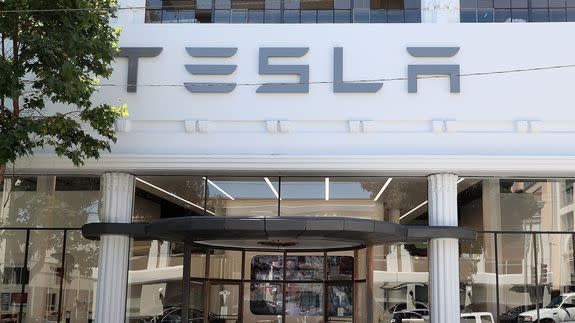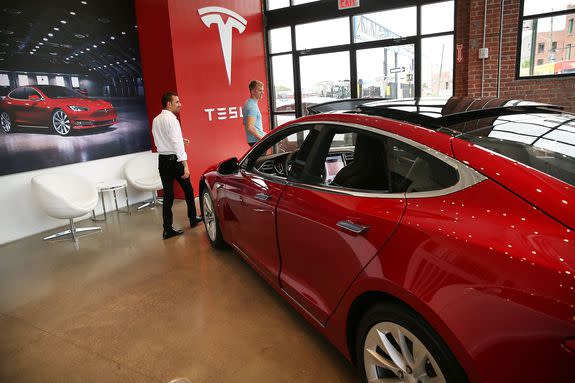Tesla will equip all its cars with full self-driving capabilities

Tesla Motors will now equip all of its electric vehicles, including the Model 3, with full self-driving hardware, the company announced Wednesday.
The California automaker said the driverless capabilities will make the car substantially safer than those steered by humans.
Model S and Model X vehicles with this new hardware are already in production, Elon Musk, Tesla's CEO, said on a call with reporters.
"All cars that Tesla makes from hereon out will have the hardware needed to be fully autonomous," he said.
SEE ALSO: Elon Musk unveils new safety upgrades to Tesla's Autopilot system
Tesla cars will have Level 5 autonomy, meaning the vehicles are fully capable of driving themselves anywhere in all conditions and weather.

Image: AP Photo/Noah Berger
Achieving Level 5 was previously considered science fiction. An Audi representative in August went so far as to describe it as "mythical," Mashable previously reported.
Musk set a lofty goal for the driverless cars: A cross-country road-trip, from Los Angeles to New York City, without a driver behind the wheel throughout the 2,800-mile journey.
By the end of 2017.
The Level 5 Teslas will include eight cameras with 360-degree visibility, up from the single camera on today's cars. The computing power will increase by a factor of 40, Musk said.
"It’s basically a supercomputer in a car," he told reporters.
Teslas will also include 12 updated ultrasonic sensors to complement the cameras, allowing the vehicles to detect both hard and soft objects at nearly twice the distance of the prior system.

Image: Spencer Platt/Getty Images
A forward-facing radar with enhanced processing will gather additional data to help steer the car, even through heavy rain, fog, and dust, according to Tesla.
The announcement arrives as Tesla is facing widespread scrutiny over Autopilot — the existing system that controls the car's automatic machine steering, collision avoidance, adaptive cruise control and assisted lane-changing functions.
Will post video of a Tesla navigating a complex urban environment shortly. That was what took the extra couple of days.
— Elon Musk (@elonmusk) October 20, 2016
Several Autopilot-related collisions — including a fatal crash in Florida in May — have left many drivers wary about ceding control of the car to a computer.
On the call, Musk bristled at the mention of safety concerns. He insisted the driverless Teslas would lead to fewer accidents and roadside deaths than human-driven cars.
If reporters contribute to turning people off from buying self-driving cars, "You're killing people," he claimed.
BONUS: Elon Musk says the Tesla Model S 'floats well enough' to double as a boat

 Yahoo News
Yahoo News 